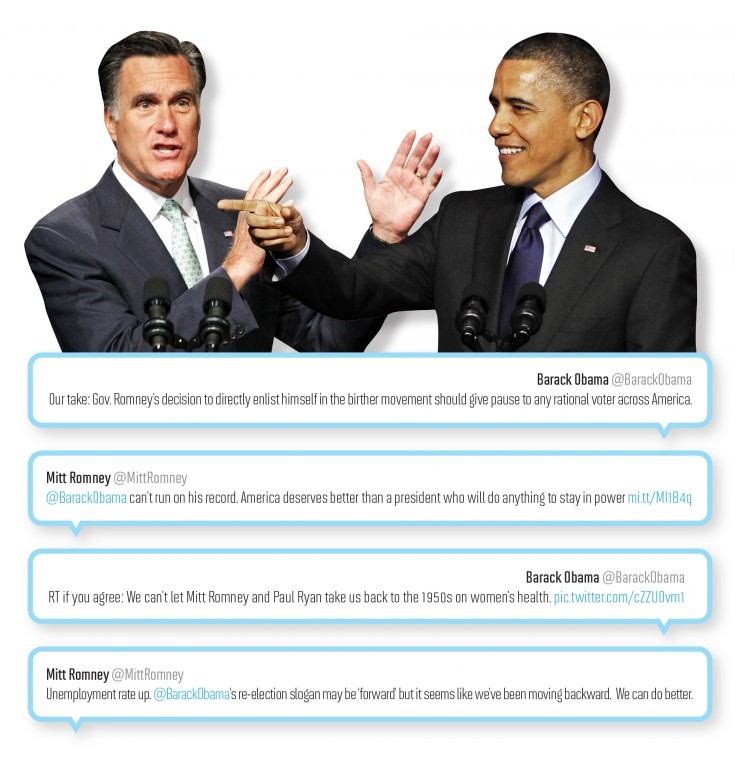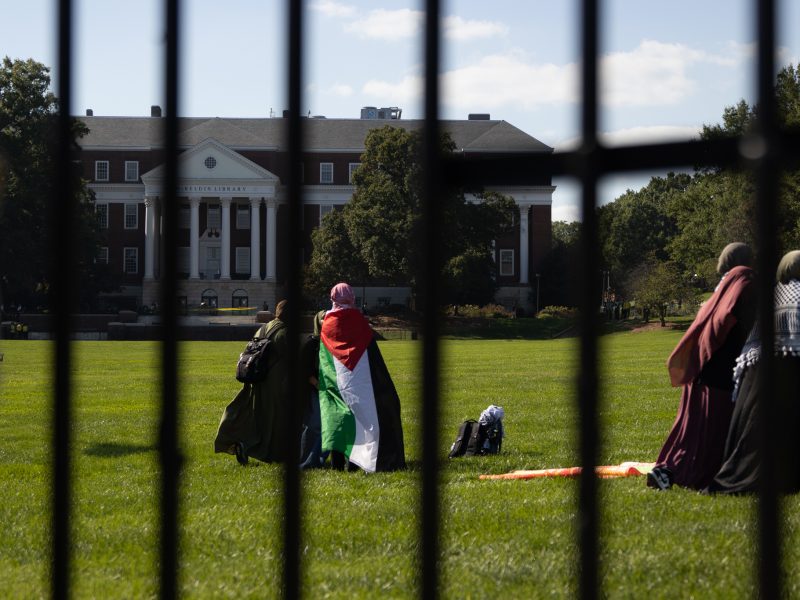
Even though younger voters are typically more engaged by social media campaigning, many students said they are less passionate about the election this year than in 2008.
Younese Mekonnen remembers the passion his friends felt toward Barack Obama in 2008. He remembers Obama had a charisma that enabled him to draw overwhelming support from the 18- to 29-year-old crowd, ultimately propelling him to the White House.
And while polls show Obama still holds a strong lead with younger voters — he leads Mitt Romney 56 percent to 35 percent with that group, according to the most recent Gallup poll — many students said the barrage of negative tweets and online campaigning from the incumbent and Republican candidate Romney have left them less than impressed. Romney, who is expected to accept the nomination tomorrow at the Republican National Convention, has relied heavily on Facebook and Twitter to break into the digital era of campaigning — far more than Sen. John McCain (R-Ariz.) did in 2008 — leading the two presidential hopefuls to take less traditional methods to attack each other and attempt to win over voters.
“Now it’s like an even share,” Mekonnen, a junior aerospace engineering major, said of the candidates’ Twitter and Facebook use. “People don’t have that ‘Obama fever.’”
Mekonnen said he still plans to vote for Obama this year because of his higher education record, which includes a commitment to maintaining Pell Grants and fighting for college affordability. This year, however, has still seen less enthusiasm from the 18- to 29-year-old demographic, despite both Obama and Romney heavily utilizing social media to campaign. While it was once a vital campaign niche for securing younger voters, social media is now used by voters of all ages, solidifying the way campaigning and politics have evolved into the digital age, said marketing professor Bill Rand.
“We are actually seeing now engagement by older demographics, by underrepresented minorities, by a lot of demographics that aren’t reached by traditional forms of media,” Rand said.
The Facebook and Twitter crowd is still dominated by younger voters, but Gallup data shows a distinct decline in election interest from the same group — a significant turnaround from the 2008 campaign. According to a July poll, 58 percent of voters aged 18 to 29 said they were “definitely likely” to vote in this election, compared to 78 percent in 2008.
“President Obama in 2008 really drew heavily from young voters,” said Hank Boyd, associate chair of the business school’s marketing department. “There was so much hope among the young people that they were really fired up.”
But with college graduates largely bearing the brunt of the economic slowdown — about 1.5 million graduates with bachelor’s degrees under 25 were unemployed or underemployed in 2011, according to an Associated Press study — it’s been tougher for Obama to garner the same energy from the youth vote.
“You have to stand and realize that these folks are going to be disappointed. They’re going to feel somewhat disaffected; they’re going to say, ‘Wow, I thought things would turn around and they haven’t turned around as quickly,’” Boyd said, adding it could prompt some voters to turn to Romney or even sit out the election altogether.
Some students said they aren’t optimistic that either of the candidates will be able to significantly remedy the slow-growing economy, which has dissipated the excitement that came with the 2008 election.
“I really don’t think that Romney is going to change that much even if he does get in,” said Greg Tambini, a sophomore bioengineering major, adding the stakes seemed higher in 2008 when the country was facing a recession and in the midst of two wars in the Middle East.
The same furor for Obama’s 2008 campaign may not be there, but a study by the Pew Research Center this month showed his campaign this year has been more present in the digital arena, posting almost four times the online content as Romney and using twice as many social media platforms.
Even though the polls indicate a lull in young voter interest, Derek Zumstein, executive vice president of this university’s chapter of College Republicans, said the enthusiasm hasn’t evaporated. Instead, it’s shifted from what it was in 2008. Then, Obama was a young up-and-comer with the ability to spark interest in the youth vote by campaigning on “change,” Zumstein said, but he is now running on his record.
“The enthusiasm factor over a ‘celebrity’ has gone, but the enthusiasm factor over quantifiable and measurable results is there,” he said. “We want actual results, rather than buzzwords like ‘hope’ and ‘change.’”
bach@umdbk.com



